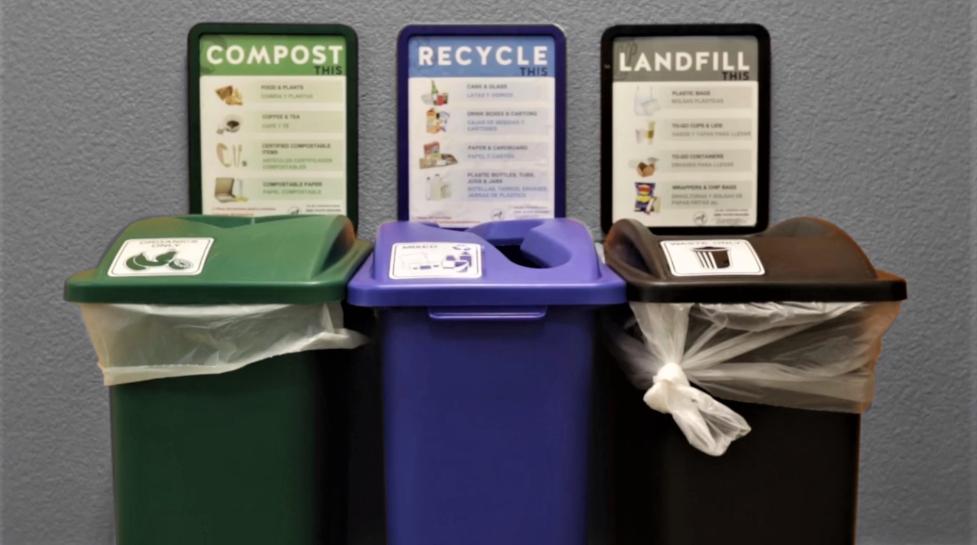Changes to address high levels of compost contamination
Changes to Address Compost Contamination
The city has made changes to compost collection rules for businesses to quickly address high levels of contamination in Boulder’s compost stream.
The community’s compostable materials, whether picked up in curbside bins or directly from businesses, is processed by A1 Organics. A1 has begun rejecting certain loads of contaminated compost materials from several communities, including Boulder – directing them to the landfill instead.
Main contaminants (PDF) include plastics, disposable gloves, diapers, glass, non-compostable to-go containers, primarily coming from customer-facing compost receptacles in businesses.
To address this urgent challenge, the city is making immediate changes to compost collection rules for businesses and providing additional guidance, including:
- Allowing businesses to remove front-of-house, customer-facing compost receptacles. (Customer-facing recycling and back-of-house composting are still required).
- Allowing businesses with public restrooms to remove bathroom compost receptacles.
The city will continue to support businesses that want to keep a compost stream available to their customers if they meet new updated practices to avoid contamination.
A Course Correct
“We believe these changes are necessary to course correct and improve the quality of our compost stream,” said Policy Advisor Jamie Harkins. “This is an important lesson learned through leading zero waste practices nationwide.”
According to the city’s zero waste business advisors, front-of-house composting does not typically have much food in it. Instead, bins fill with compostable foodware, napkins and, unfortunately, many contaminants like plastic and glass.
“We value the partnership of our community and local businesses as we work together to create high-quality compost that restores our soils and absorbs carbon instead of polluting our landscapes. This starts with thoughtful sorting while working on larger system changes that make it easy for consumers to do the right thing,” said Harkins.
These changes will be in effect until further notice, and city staff have begun the process of updating the city manager’s rules to reflect the new guidelines. City staff and partners are currently engaging with local businesses to communicate these changes and address concerns.
Food businesses will soon receive a letter from the city explaining the changes and sharing new guidance for compost collection, as well as ways businesses can shift away from disposable foodware.
The city and its partners are redoubling efforts to educate the community about proper sorting. This work includes call-to-action articles and interactive resources, like the Zero Waste Sorting Quiz.

Moving beyond recycling and zero waste to focus on circularity
Working Toward Circularity
Long term, the city recognizes that a shift toward circularity and reusable products will address many systemic climate and waste management challenges, including waste stream contamination.
“While waste diversion remains important, we cannot recycle and compost our way out of the climate crisis,” said Harkins. “Recognizing this, we are exploring innovative ways to prevent creating waste in the first place, like reusable foodware options for takeout and delivery. We’re also beginning to explore what regulations to reduce single-use plastics that contaminate our compost and soils might look like.”
